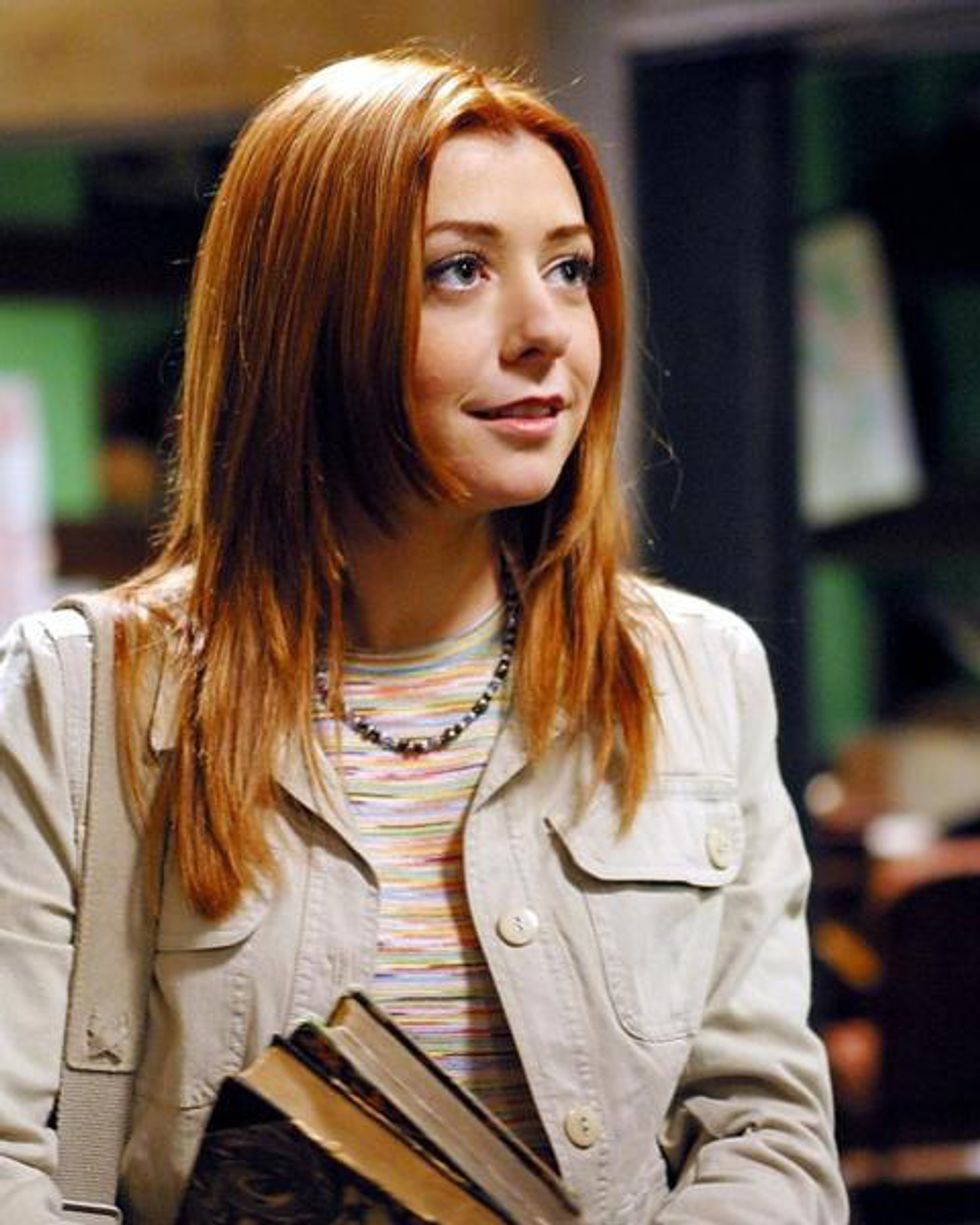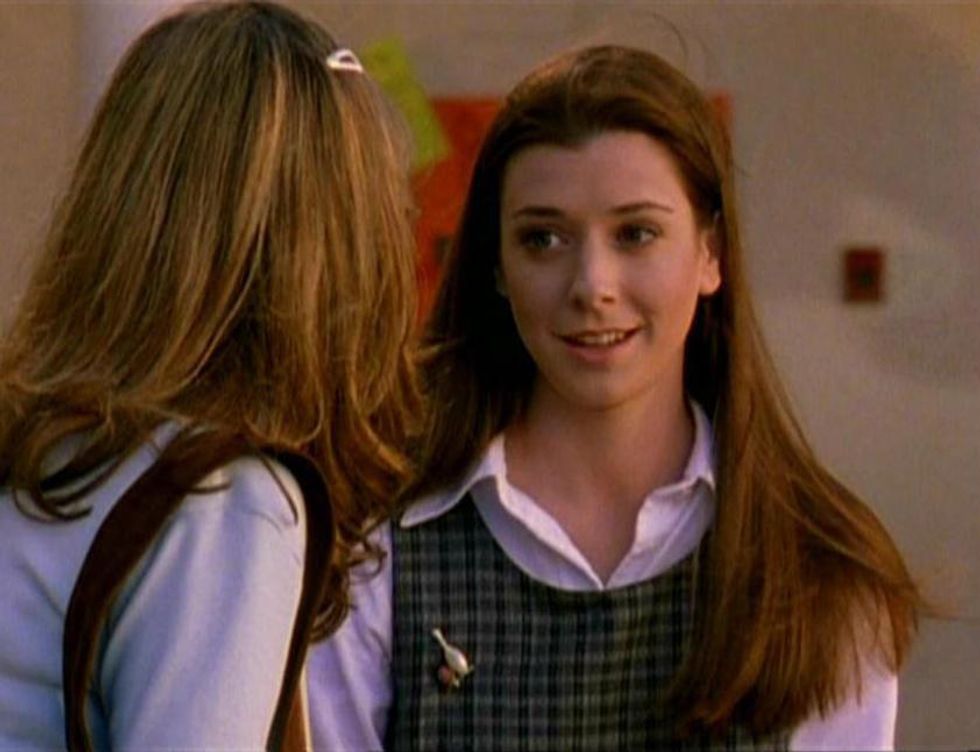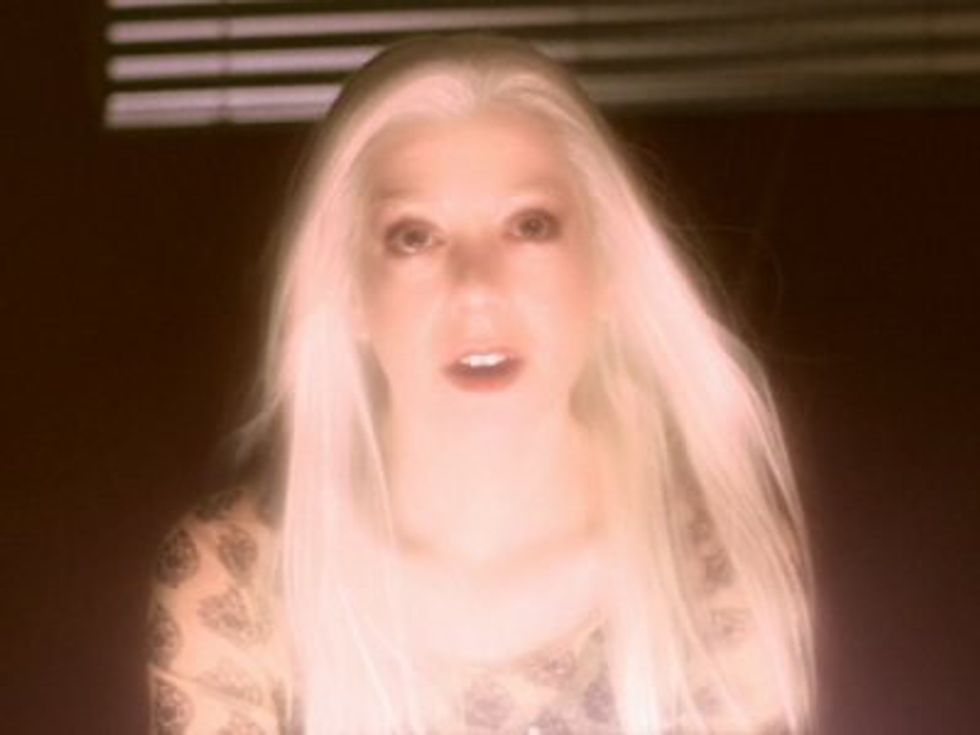This week in my Developmental Psychology class, we were asked to choose a child or adolescent fictional character from a book, movie or television show to analyze and show how this character may be vulnerable to psychopathology. Since I am such a Buffy fanatic, the character I chose for this assignment was Willow Rosenberg from "Buffy the Vampire Slayer." Stated below are my reasons for Willow's development of psychopathology.
Willow Rosenberg is one of the main characters on the fantasy television show “Buffy the Vampire Slayer,” which aired from 1997-2003. In the first season of Buffy, Willow is an adolescent who is very shy, easily intimidated, nerdy and unconfident—she is made fun of by her peers and struggles to make friends. Both of her parents are portrayed as negligent and permissively indifferent. Because of this neglect, Willow struggles for self-assurance.
It isn’t until she meets Buffy where she starts to feel advantageous and important. Willow began to use her knowledge and computer skills to help Buffy fight the forces of darkness. As the Buffy storyline progresses, Willow begins to inherit magical abilities and studies witchcraft. When she realizes how powerful she is, the magic begins to consume her—the magic becomes like a drug. Willow is by far the most complex character on Buffy, and her development is so incredibly profound.
The internal risk factors that I believe contributed to Willow’s vulnerability to experience psychopathology in the future are due to negligent and uninterested parents. Both Willow’s parents are professors—they are highly educated people who are very committed to their work and are always traveling. As a young woman, a mother/daughter relationship is very important. It is mentioned by Willow many times through the series her mother does not make an effort to be a part of her life. Willow and her mother hardly ever have discussions—in Season 3, Willow says the last time she had a conversation with her mother over three minutes was about the patriarchal bias of the Mr. Rogers show.
Willow doesn’t feel like she can open up to her parents. In conclusion, everything she does is in secret. Her parents kept her very sheltered and did not allow her to do simple things all the other kids were doing. Children who are sheltered develop a larger sense of curiosity as they mature, which can lead to damages. We also learn during her childhood she would do everything she could to become her parent’s version of the “ideal” child—she would even wear every outfit her mother picked out for her.
Willow achieved excellent grades in school, which could also be due to that craving for praise and love from her parents. Willow’s burning desire for acceptance and self-assurance from her family definitely in the long run contributed to her psychopathology which surfaces in the future. External factors that could have contributed to her psychopathology would be due to the fact she was the target of significant amounts of bullying in her childhood all the way up to high school. The constant bullying leads her to lack of self-worth. Willow views herself as pathetic and powerless.
If I were to meet this character five years from now (not already knowing her future), I do believe she would develop a psychological disorder. The first DSM-5 disorder Willow could face is addiction, which is the fact or condition of being addicted to a particular substance, thing or activity. Due to Willow’s neglect as a child, she develops an addictive personality. In her childhood, she felt worthless, unloved and had no sense of satisfaction.
When Willow discovers her powers, they could consume her. Magic, again, could become like a drug to Willow, and it could become detrimental to her mind and body—a taste of something that makes her feel strong and powerful could be very dangerous and life threatening. Even though Willow has a fantastic support system with her friends, this still will not compensate for the lack of support as a child. She is also at risk for developing obsessive-compulsive disorder (an anxiety disorder in which people have unwanted and repeated thoughts, feelings, ideas, sensations or behaviors), major depressive disorder (depression) and anxiety (a feeling of worry, nervousness or unease, typically about an imminent event or something with an uncertain outcome). OCD could be a risk because of her addictive personality—any sense of gratification could lead to a compulsion. Depression and anxiety could be risks, because of her feelings of low self-worth and abandonment. Even though Willow’s social life improves with age, she still suffers psychological damage, which affects her academic performance and her emotions.
If I could change Willow’s story to further strengthen and promote her resilient coping, I would insert into her life a set of loving, caring, authoritative parents. Growing up loved and accepted can make all the difference in the world in a persons’ life. Growing up with parents who are present can lead to life-long feelings of confidence, self-love and overall happiness. Second, I would insert into her life education about the risks of addiction so her curiosity won’t control her actions. Third, I would eliminate the childhood bullying she went through. And lastly, I would spare her the death of her only love, Tara. The traumatic and unexpected event, Tara’s death, was one of the contributing factors to her substance (magic) abuse. Willow stated Tara was the only person in her life that saw her, loved her and appreciated her for everything she was. With Tara, she had a support system from someone other than friends. Tara’s death pushed Willow over the ledge and caused a world of chaos—eliminating Tara’s death would definitely contribute to Willow becoming resilient and recovering from her childhood of neglect.
Despite Willow's rocky past, she is strong enough to overcome any obstacle she might encounter.






















